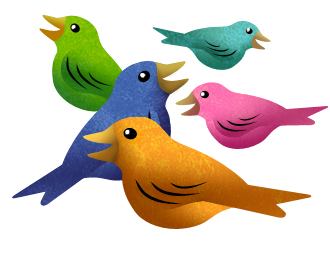What have brains got to do with it?
17 October 2013 | Columns, Tales of a journalist

Illustration: Joonas Väänänen
Pondering his changing profession once again, columnist and media critic Jyrki Lehtola feels compelled to present a brief history of the media
Not long ago a certain media company invited me to participate in a panel on brainprints.
I didn’t know what they were talking about, so I agreed. At most I thought it was about the engram left in our collective psyche that yes, we used to have this sort of print media thing that told us what the world was like.
And then we didn’t – look at this picture of print media on my iPad, kids, isn’t it cute?
That wasn’t what it was about at all. Brainprint means all the ways the media can influence us as consumers. In other words, this is one more conversation the media has with itself to convince itself that it has a role to play.
There we sat around a long table once again talking about whether the media is a mirror or a window when maybe we should have been talking about the pile of glass on the ground and whether someone shouldn’t clean it up before someone hurts themselves.
![]()
And now, a brief history of the media. You’re welcome.
First there was nothing. There you all were being stupid, walking around in your fields ignorant of what was happening in the world.
Then we created the media for you. It included announcements, bulletins, and news about events in the village. For some reason you were thrilled. Probably because you didn’t have anything else available, and we were offering you something at least.
We here in the media looked you over a bit. To be perfectly honest, you were rather uncouth. So we decided to make it our job to give you a little culture. You paid us for telling you about the world, its doings, and what you should think about them.
The number of newspapers began to grow, and you chose the one that best reflected your own values. And so we made you civilised. We told you how you were supposed to think about events in the world within your set of values.
Then your world began to expand. Electricity, television, computers, wireless networks, tablets, and smart phones were invented. All that cost you money, so it was understandable that you weren’t so enthusiastic anymore about paying for content, so we began offering it free so you would still care about us even a little bit in a changing world.
Now you could find your values everywhere. You visited websites that supported your existing ideas and made friends on social media who shared your values and with whom you could laugh at other people’s values.
There was so much content in this new world that you had to invent microblogs like Twitter to help. There you could follow your favourites as they told you what to think about the world in 140 characters or less. We watched these changes with disdain from the side lines, holding seminars about how social media was just a momentary fad.
It wasn’t. The people began to draw away from us. They only wanted our free content, and at the end of each of our journalistic achievements we submissively added Facebook and Twitter buttons so you could click them.
And you did. You clicked our stories about weight loss, women’s breasts, slinky celebrity pictures, and the 99th reason why you should sleep in the dark with the temperature turned down (you’d think you already would have learned).
Our educational mission had turned on its head. Before, we educated you. Now, you educate us. You tell us what you want by clicking. And we gladly accept that information, analysing it and trying to offer you what you want. Stories about weight loss, women’s breasts, slinky celebrity pictures, and the100th reason why you should sleep in the dark with the temperature turned down (you’d think you already would have learned).
It’s hard. To keep our journalistic heads held high amidst all this, when much more clickable than our stories is the YouTube video where a kid nobody knows does, well, nothing in particular.
Then the babies got in on the clicking competition. Visibility in social media is so important that parents started reserving Twitter accounts for their new-born babies so no one else would get them.
Somehow it seemed stupid to leave an account like that unused, so the parents started tweeting in their babies’ names. One tweet read, ‘I pooped and peed on the doctor’s table. Everyone laughed.’ At two weeks old, that baby had nearly one thousand Twitter followers.
![]()
And so there we sat, surrounded by all of this, discussing the media’s impact, as if nothing had changed, as if we were still just as important as we once were.
What could one really say about the media’s prospect for having an impact? That the only brainprint we can leave is consumers feeling content that someone shares their ideas and offered them something they wanted.
And yet that lost to the video where the cat, well, acted like a cat and left you feeling chuffed for the rest of the day, with a brainprint that maybe someday you should get a cat of your own.
Translated by Owen Witesman
No comments for this entry yet
